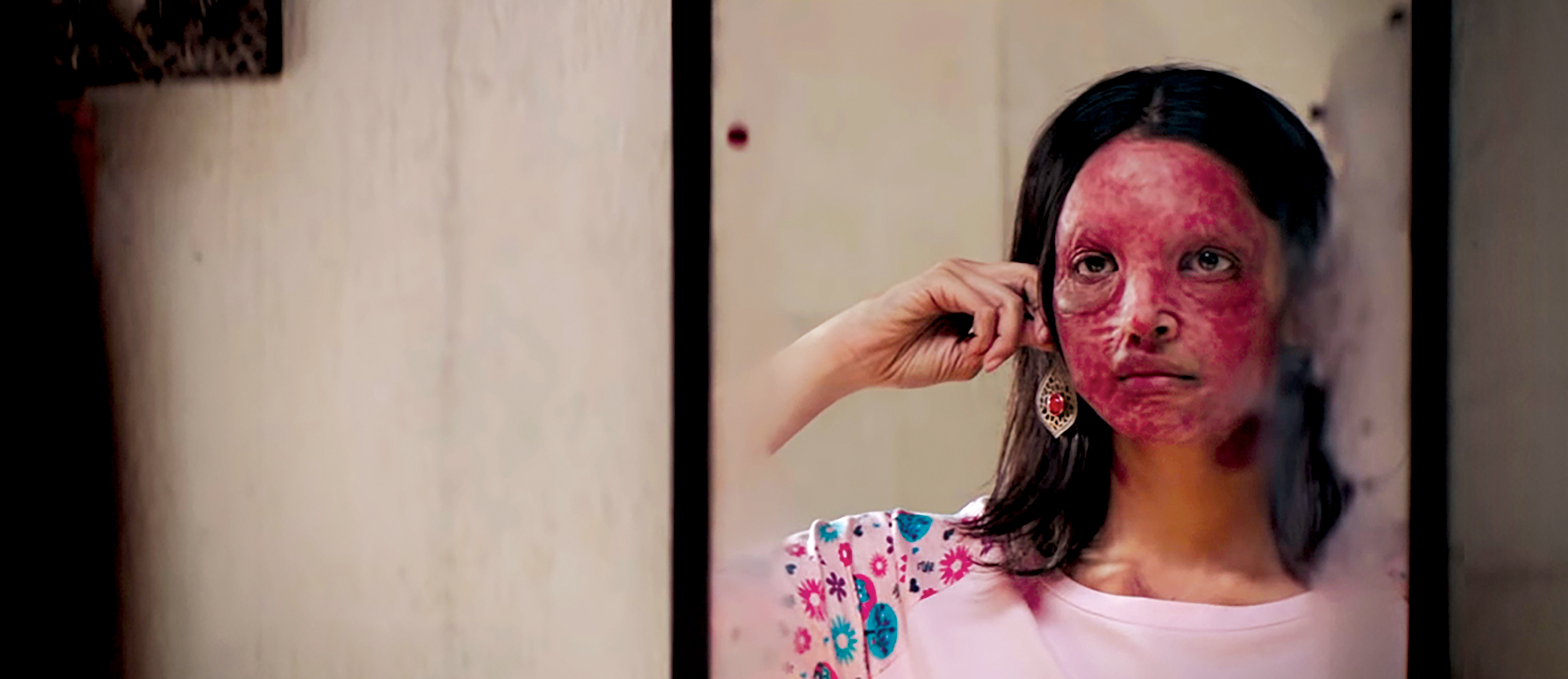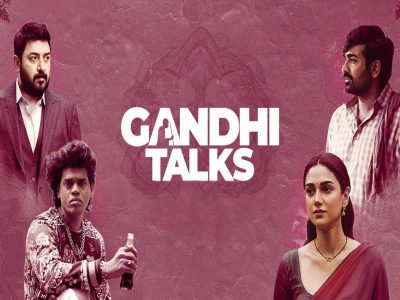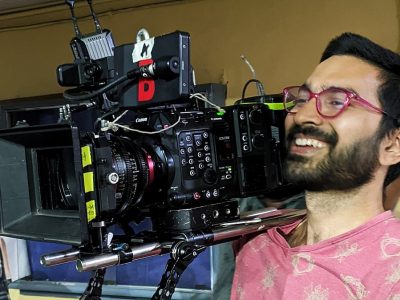In these troubled times, a brave woman has chosen to fight for the greater good, even though she has the most to lose
IN 2005, fifteen-year-old teenager, Laxmi Agarwal was assaulted. Acid was thrown on her face and body by a close family friend, Naeem Khan. In an all too familiar saga, the attacker, a man almost double her age, was angered by her refusal of his marriage proposal. Khan took his revenge on Laxmi by what he thought would be an attack to destroy her life. However, Laxmi turned that hate around and has become a symbol not just of survival but of victory over such violent vengeance. The film Chhapaak is based on Laxmi’s life.
This is Meghna Gulzar’s third film (after Talvar and Raazi) on real-life stories fictionalised for mainstream audiences. Told with a tautness and control of narrative that has become her trademark as a director, there is no melodrama or overt victimisation in the film. There is no obvious villainy either. It is what it is, and the viewer can take the message and do with it what they will. As Namrata Joshi says in The Hindu, it is the “sparseness, minimalism and austerity in the telling and an essential quietude that lend Chhapaak an emotional force of its own”.
In an interview to Scroll.in, Gulzar says, “There were two things on my mind both while writing and executing the film. The first was that the acid attack survivor is not a victim. She is resilient, and that needs to come out in the film. She’s a fighter. Secondly, the nature of the subject is such that it lends itself to extremely graphic and disturbing visuals. But you still want the audience to keep their eyes open. Otherwise, it beats the purpose of telling the story.”
Both these objectives were met well with the casting of Deepika Padukone as Malti (Laxmi Agarwal).
In 2013, Deepika Padukone became the first actress with four films crossing over Rs.100 crore at the Box Office. Out of 21 films in her filmography, seven have been hits, two superhits and two blockbusters, according to movieboxofficecollection.com.
With a price tag of eight to ten crores rupees per film (India Today), she is paid more than some of her male and female co-stars.
Padukone brings charisma and box office star value to Chhapaak, both as an actor and a producer. It is her debut as a producer, and she could not have chosen a better film — both for its subject and its impact with making meaningful cinema in Bollywood. The first-day collection of the film is already being estimated at rupees five crores, an encouraging start to a small film made big by its star.
Deepika Padukone is brilliant as Malti. She invests the role with dignity and poise, and there is a consistent vulnerability that she brings to the character on screen. When Babbu Bhaiya is forcing himself on Malti, you feel her confusion, helplessness and angst. When Amol is foisting on her his frustration and cynicism, you feel her patience and strength. As a victim, she knows the pain and anger, but as a survivor and fighter, she also knows her own journey. By not wallowing in self-pity and helping other victims of acid attacks instead, Malti earns the right to say “Mujhe party karni hai” when the sale of acid is regulated by law.
There are so many instances when the film serves up an indictment of the system — the law and the breach in its observance, the insensitivity of the police, the horror of multiple surgeries, and the facial deformity that acid attack victims have to live with. In a particularly poignant scene, another acid attack victim tells Malti that when she gets money from the victim compensation fund, she will get a surgery done for a new face like Alia Bhatt!
In her autobiography, Being Reshma: The Extraordinary Story of an Acid-Attack Survivor Who Took The World By Storm, Reshma Qureshi talks about the horrible pain she went through and the insensitivity of the medico-legal system in the immediate aftermath of the attack on her. It makes for very uncomfortable reading.
Perhaps Meghna Gulzar could have sharpened her film by drawing a little more drama from reality such as the procedure of lodging the police complaint and the immediate medical aftermath of an attack. For example, Reshma Qureshi talks about water being the only remedy to protect the body from the corrosiveness of the acid seeping in deeper and causing more damage. This should have been emphasised upon again and again. In Chhapaak, even though a bystander pours water on Malti immediately after the attack, her shrieks leave the audience confused about its effectiveness as a remedy. There should also have been more information on the clothes of the victim, especially when fused with the body. A little more attention could have been given to what a victim must do, rather than the focus on the court of law.
As Malti, Deepika Padukone had a challenging role both emotionally and physically with prosthetics. It is no surprise that she responded to a situation of unprovoked violence and aggression on students at the JNU campus in Delhi on Sunday, 5th Jan. That she turned up on the campus to show solidarity with the brutalised students (the attacking mob was also said to have armed themselves with acid) — within two days of the incident, in the middle of promoting her film — only reflects how she has internalised the trauma and the strength of the character she portrays.
The fact that she chose not to speak makes clear that the visit was to mark an emotional rather than political solidarity. Unfortunately, there is an entire army of trolls who have not seen Chhapaak. They have no understanding of the anger of the students and citizens who are holding peaceful protests across the country either. Boycotting Padukone or attempting to mischaracterise and malign her will not succeed because, with her silence, Padukone has effectively shut the door on any politicisation of her visit.
Rosa Parks, the anti-racism/ anti-segregation activist in America, is believed to have said, “I have learned over the years that when one’s mind is made up, this diminishes fear: knowing what must be done does away with fear”.
Deepika Padukone has shown yet again that she knows what must be done. Raja Sen in the Mint says, “They said they would boycott her film. They said they would cut off her head. They said she couldn’t act. Deepika Padukone has spent her career putting ‘them’ in their place”.
As Barkha Dutt wrote in the Hindustan Times, “In a risk-averse and status-quoist industry such as Bollywood, it’s not easy to go against the tide”.
After JNU, Deepika Padukone chose to visit the set of Bigg Boss Season 13 to promote her film. Despite the violence and misogyny on the show, this promotion indicates that she is yet to embrace gender justice as a cause. Perhaps this will follow with her next film as a producer.
Padukone is producing and starring in an adaptation of the Mahabharata, told from the perspective of Draupadi, “I felt it was interesting to look at it from another angle” she told Scroll.in.
History will bear witness to Deepika Padukone’s courage and strength as an actor, producer, activist but above all, as a brave woman who in tough times chose the good fight when she had the most to lose.
www.newslaundry.com ■





